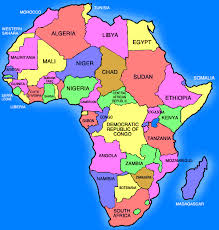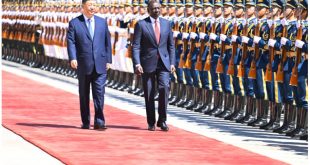Published:May 22,2022

Universal access to digital technology could be the answer to Africa’s endemic under-development, inequality, poverty and conflicts, experts said at a briefing in Nairobi, the Kenyan capital, on Friday.
Nnena Paul-Ugochukwu, the chief operating officer at Paradigm Initiative, a Pan-African non-profit organization that promotes digital inclusion, said that expanding access to the internet will enable the continent to realize its transformation agenda. “We need to address bottlenecks that have widened the digital divide in Africa including lack of infrastructure, limited electricity connection and high cost of devices,” she said, adding that affirmative action was required to bring marginalized groups like women, persons with disability and the rural poor into the digital space and accelerate inclusive growth.
The just-ended Digital Rights Inclusion Forum (DRIF) that was held in a hybrid format and convened by Paradigm Initiative resolved to advocate for policies, legislation, training and innovative financing to boost connectivity in Africa.
Thobekile Matimbe, the communications manager at Paradigm Initiative, said the forum offered a platform for key stakeholders to chart a new roadmap for advancing digital inclusion and rights in the continent. According to Matimbe, robust investment in broadband infrastructure, training and awareness creation was key to bridging Africa’s huge digital divide that bodes ill for the continent’s quest for equitable growth, peace and cohesion.
In particular, Matimbe called for embedding digital literacy programs in the school curriculum alongside policy shifts to ensure that the marginalized population benefited from the rapidly growing knowledge economy in the continent.
Prohibitive taxation, haphazard regulations and under-investment in supportive infrastructure were undermining efforts to narrow the digital divide in Africa, said Charles Kajoloweka, the executive director of Youth and Society, a Malawian lobby group. Kajoloweka said that African governments and telecommunication firms should subsidize internet connection in low-income settings besides lowering the cost of devices in order to promote digital inclusion in a predominantly young continent.
He added that the digital economy in Africa had the potential for growth if regulators and industry prioritized the enactment of policies and legislation that encouraged innovation.
 Africa -China Review Africa -China Cooperation and Transformation
Africa -China Review Africa -China Cooperation and Transformation
